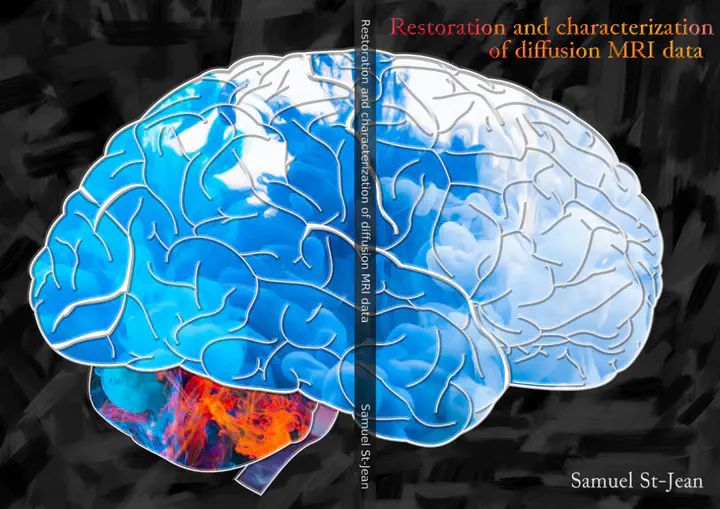
Abstract
Diffusion magnetic resonance imaging (dMRI) is an imaging technique to obtain information about the microstructural properties of tissues non-invasively, such as white matter in the human brain. The properties of the dMRI signal can be used to extract scalar maps of tissues and their orientation based on the displacement of water molecules, revealing their abnormalities in the process. However, scanning protocols for dMRI datasets are oftentimes limited by their lengthy acquisition time, lower signal-to-noise ratio (SNR) and lower spatial resolution when compared to the acquisition of traditional T1-weighted images. Due to the variability in scanning protocols and the hardware used during acquisition (e.g. in multicenter studies), variation in the signal properties are ubiquitous and preclude direct comparison of the datasets. To alleviate these issues, this thesis presents new algorithms to enhance the analysis of diffusion MRI datasets. In chapter 2, a new denoising algorithm exploiting the spatial and angular redundancy of dMRI datasets is introduced. Results show that the SNR and tractography of major pathways in the brain are improved on a 1.2 mm dataset of a single subject when compared to a 1.8 mm dataset of the same subject for matched acquisition time. Chapter 3 presents a new algorithm for extracting core representation of the fiber bundles based on the assignment of values to locally orthogonal planes. Caveats of the traditional Cartesian averaging technique are also shown in the presence of crossing or fanning fiber configurations. Chapter 4 follows in the idea of chapter 3 and presents a new realignment algorithm for along-tract analysis which can be applied in the 1D space of common coordinates. Experiments on 100 in vivo subjects show that the variability due to truncation and misalignment between subjects is reduced after realignment. Alterations of the studied metrics in specific regions are averaged out when there is a misalignment but can be identified after realignment in most cases. Chapter 5 presents an automated algorithm to identify the noise distribution of diffusion MRI datasets. Experiments using datasets acquired in three different centers show that the noise distribution depends on the reconstruction algorithm which is used and varies between vendors, but can be measured from the datasets themselves or from noise maps. Chapter 6 combines these previous ideas by presenting an algorithm to harmonize datasets acquired on different scanners with dictionary learning. Features present in all datasets are automatically extracted and subsequently used to reconstruct the datasets with an adaptive regularization value. This discards unwanted variability which is associated with a particular scanner while preserving individual subjects’ natural variability amongst the group. Experiments with an altered version of the datasets show that the natural variability is preserved while decreasing variability across scanners, even if alterations are not part of the initial training datasets. Taken together, these new ideas facilitate and enhance the analyses of dMRI datasets and could help to uncover new biomarkers for earlier identification of neurodegenerative diseases such as Parkinson’s or Alzheimer’s disease.
Reference:
St-Jean, S. Restoration and characterization of diffusion MRI data PhD thesis presented at the University Medical Center Utrecht for a degree in Medical imaging. Book version